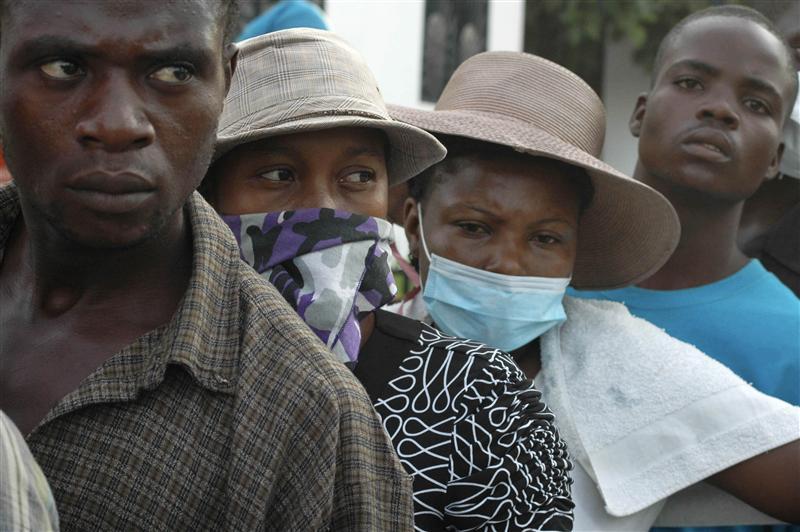Cholera outbreak in Haiti
New cholera outbreaks
Since the cholera outbreak that hit Haiti in late 2010, more than 473,000 people have contracted the illness, and more than 6,600 have died. Oxfam responded where the epidemic hit hardest, providing clean water, sanitation facilities, and hygiene supplies to nearly 700,000 people, but the disease eventually spread to all provinces of the country – including rural areas where communities rely on untreated river water for drinking.
Not long after announcing we were winding down our response to the 2010 outbreak, a new outbreak of the disease occurred in Carrefour, south of Port-au-Prince. A mountainous area near a river, Carrefour lacks sanitary facilities, and has very little drinking water. When heavy rains struck in late May 2011, they caused bacteria to spread into the local water sources. Agencies working at the Cholera Treatment Centre (CTC) in Carrefour identified a high number of new cholera cases. Mimi Muisa Kambere, Oxfam’s Public Health Promoter, reported that “the current cholera outbreak … is far worse than the one registered in November. At that time, there were a maximum of 900 reported cases per week. Now, over 300 new cases are registered every single day. However, the number of casualties is far lower than we saw in November as people are able to get help faster.”
The southern province of Nippes is also a high-risk area. With its tough terrain and lack of transport, sanitation or government support, its cholera mortality rate has been disproportionately high compared to cases diagnosed. But Oxfam is working hard to change that, repairing destroyed water systems and installing chlorination systems. Find out more and watch a video about our work in Nippes.
Immediate response
Oxfam’s Country Director in Haiti, Roland Van Hauwermeiren, says, “Our teams are ready to provide emergency response to this recent cholera outbreak. We have already prepared an action plan for an eventual intervention: our strategy is in place, our stock is ready and our experts are already carrying out an assessment of the situation and providing a first response. We now need the international community, especially donors, to support our efforts.”
In the meantime, we’re doing all we can to stop the cholera from spreading: reinforcing our water, sanitation and hygiene work in the Carrefour community, handing out soap and aquatablets to chlorinate the water, and advising people how to avoid infection. We are also working with other agencies in the area. As Mimi Muisa Kambere explains, “Coordination with local authorities and other NGOs in the area is vital so that we can be as effective as possible in our response.”
Previous outbreak, October 2010
Following the massive earthquake that devastated Haiti in January 2010, the country was struck by a second disaster in October with an outbreak of cholera.
The fast-moving diarrheal disease killed more than 1,250 people and sickened another 20,000 in the months following the outbreak. When a hurricane lashed Haiti in early November, the heavy rain caused the disease to spread beyond the hard-hit Artibonite province north of Port-au-Prince, leading us to double our cholera response efforts.
What we did
In Port-au-Prince we benefited 500.000 people. If we add the other 700.000 beneficiaries targeted by our WASH (Water, Sanitation and Hygiene) intervention after the earthquake, we reached 1.2 million beneficiaries in the capital.
Our work also reached the provinces. In Artibonite, we distributed water purification tablets, soap, and oral rehydration salts while building, repairing, and purifying wells and disseminating hygiene messages through radio broadcasts and community meetings. In the Palmes region, we worked with more than 104.000 beneficiaries, promoting hygiene and distributing kits distributions.
We launched a cholera response for 260,000 people in Cap Haitien, a large city in the northern part of the country, but were forced to temporarily suspend our work there in mid-November due to violent protests.
We also distributed water filters, built latrines and rehabilitated manual water pumps in the communes of Léogane, Kenscoff, Delmas and Tabarre.
Watch a video update on our work
Find out more
Providing people with clean water, sanitation, and hygiene education is the only way to prevent the spread of diseases like cholera. Read more about our initial response to the outbreak, and get the latest news on our Emergency 365 blog.
 Alertnet.org">
Alertnet.org">